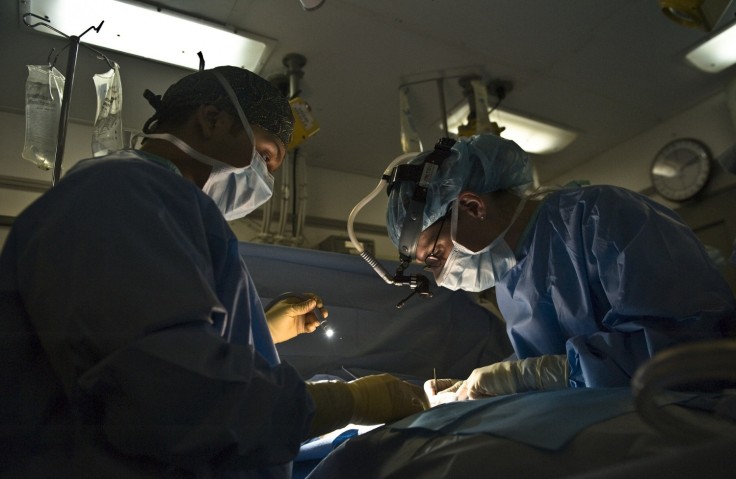
Tayler and Nick Monroe were shocked upon learning that their baby, Owen Monroe, had a severe congenital heart defect and standard surgeries couldn't treat it, according to TODAY.
However, using a procedure that had only been performed successfully on pigs, surgeons transplanted parts of a donor's heart into baby Owen's heart and saved his life.
The new procedure is now being hailed as a game changer in pediatric heart surgery and served as the beacon of hope for millions of babies with congenital heart defects.
The couple first got the warning signs that something was wrong with their baby 16 weeks into the pregnancy. They decided to undergo an ultrasound that showed an issue with Owen's blood flow. It was also determined that he wasn't growing properly. At 20 weeks, Tayler had another ultrasound, which showed that the baby had a life-threatening congenital disability in his heart called truncus arteriosus.
Truncus arteriosus is a rare congenital heart condition that happens when the blood vessel from the heart fails to develop properly in utero, says the Centers for Disease Control and Prevention (CDC).
Dr. Joe Turek, chief of pediatric cardiac surgery at Duke University and Owen's surgeon, said that a healthy heart comprises two arteries coming out of the heart: the Aorta, which goes to the body and gives oxygenated blood, and the Pulmonary Artery that goes to the lungs to acquire oxygen.
"It's not something anybody wants to hear"
Dr. Turek added that Owen had one main artery and valve that came out of the heart instead of having two. Unfortunately, the valve that manages the blood flow was leaking.
According to the CDC, newborns with truncus arteriosus must undergo surgery, which usually occurs within the first few months of life, mending both the heart and blood vessels. Dr. Turek added that if these cases are left untreated, the condition can be fatal.
Nick expressed his sadness and said, "It's not something anybody wants to hear."
Owen was born on April 5, 2022. Nick and Tayler received more bad news the next day, with doctors saying the leak in Owen's valve was severe, as revealed by the post-birth test. It prompted doctors to conclude that their original surgery plan wouldn't work as Owen's case was already critical.
Defects on Owen's valve can be repaired if the valve itself is good, but in the young boy's case, his valve appears abnormal, and Turek said that they wouldn't be able to fix it as his situation is very uncommon for patients who have truncus arteriosus.
The poor baby boy would need two new arteries and two new valves. The top half of his heart needed to be replaced. Surgeons normally replace arteries and valves from frozen preserved cadaver tissue, but because the tissue is not living, it won't grow, and the infant will outgrow them.
The first ever partial heart transplant
Surgeons admitted that Owen's case was complicated to figure out, considering that it would be the first time for the child and the parents. But, given the severity of the young boy's condition, the partial heart transplant seemed like the right next step.
The decision was always up to Owen's parents, but they decided to let the doctors and surgeons do whatever they could to save their baby. Finding a donor for a partial heart transplant always seems like a struggle, and so is waiting every day.
Owen is now a healthy five-month-old baby meeting and having all the major developmental milestones.
Related Article: Dad Who Got World's First Pig Heart Transplant Doing Better; Son Hails Miracle of Science